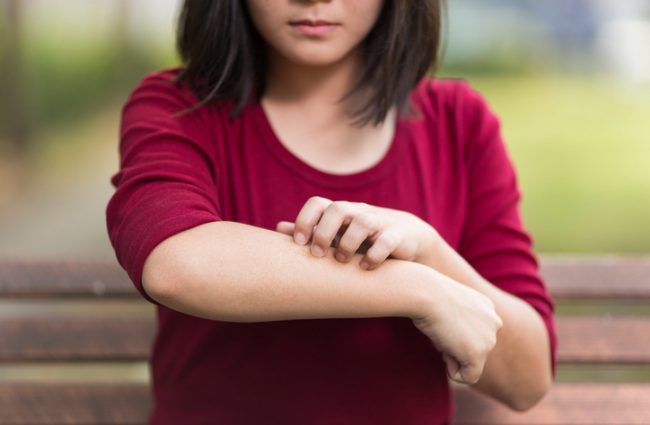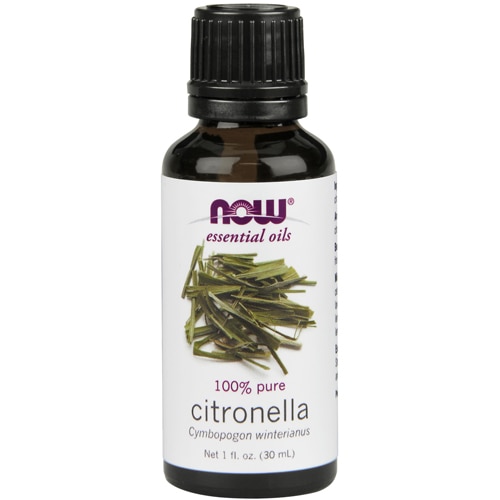Summer is almost here, bringing beautiful flowers, long days and warm weather. But unfortunately, it's also the season for insect infestations. Obviously, the goal is to not get bitten. But sometimes, and for some of us, it just seems impossible to enjoy the season without at least a few bug bites and stings. 
Whether a bite is from a mosquito, bee or ant, when the predator’s saliva comes into contact with your body, you release histamine, which can result in itchy welts or even hives. You don’t have to head straight for the hydrocortisone or lidocaine creams, however. While these products do work, they are chemical-based drugs with potential contraindications. Some medicated creams can cause side effects ranging from sleepiness to heart palpitations, cautions Stephanie Tourles, an herbalist and author of several books, including Organic Body Care Recipes.
Natural bug zappers
Tourles recommends turning to your natural medicine cabinet, or even your fridge, for effective bug bite remedies.
Lavender essential oil is naturally soothing and antiseptic. It not only helps to reduce swelling and itchiness from insect bites, but it can also help cleanse the area, Tourles says.
To use: Apply a single drop of undiluted lavender essential oil to the bite, twice a day, for two days to ease the itch and inflammation.
Apple cider vinegar is calming, and its malic acid helps reduce the pain or itch from a bee sting or insect bite.
To use: Apply full-strength, chilled apple cider vinegar directly to bites. You can also soak in bathwater with 1 cup of apple cider vinegar.
Aloe vera juice is one of nature’s best remedies for soothing itches and burns, whether from bugs or the sun. “Aloe vera is a natural anti-inflammatory and astringent (tissue tightening), and offers mild antiseptic properties. Plus, its cooling energy helps shrink swollen bites,” Tourles says.
To use: Spray or dab aloe vera juice directly onto your skin. This works wonders for rashes.
Baking soda reduces both the pain and inflammation from a sting or bite. It’s also a great option for children because it’s mild and won’t cause reactions.
To use: Mix two parts baking soda with one part water until it becomes a sticky paste. (You can also substitute apple cider vinegar for the water.) Apply the mixture directly to a bite or sting. As it dries, it will help alleviate itching and swelling.
Be an unattractive host
The key to enjoying a sting- and bite-free summer is to keep bugs away from you in the first place. Tourles and herbalist Brigitte Mars suggest this anti-bite checklist:
Avoid fragrances—both natural and synthetic— as bugs are attracted to sweet scents.
Ditch the sugary foods while in bug-infested areas. Sugar not only sweetens the carbon dioxide on your breath, which bugs are drawn to, but it also sweetens your sweat. Essentially, if you consume a refined carbohydrate-heavy diet, you’ll more likely serve as dinner for sugar-loving insects.
Pop the (natural) pills. Taking three to four garlic capsules a day or 100 mg (50 mg for kids) of B-complex vitamins can change your scent, making you a less appetizing host.*
Safe scents
You can make your own bug repellent with eucalyptus, geranium, citronella, lavender, catnip, rosemary, lemongrass or cedar essential oils—all of which are natural insect fighters, says Tourles.
Mix 1 cup of witch hazel with 20 drops of one or more of these essential oils. Shake well before use, and spray lightly onto your clothing, especially at entry points (shirt and pant cuffs, shirt collar). This formula is not for children under the age of 6.
Unfortunately, the best summer plans can be thwarted by a bad encounter with too many bugs. But with some dietary changes and a prepped medicine bag, you’ll be more likely to coast through summer with fewer bites and happier skin.



